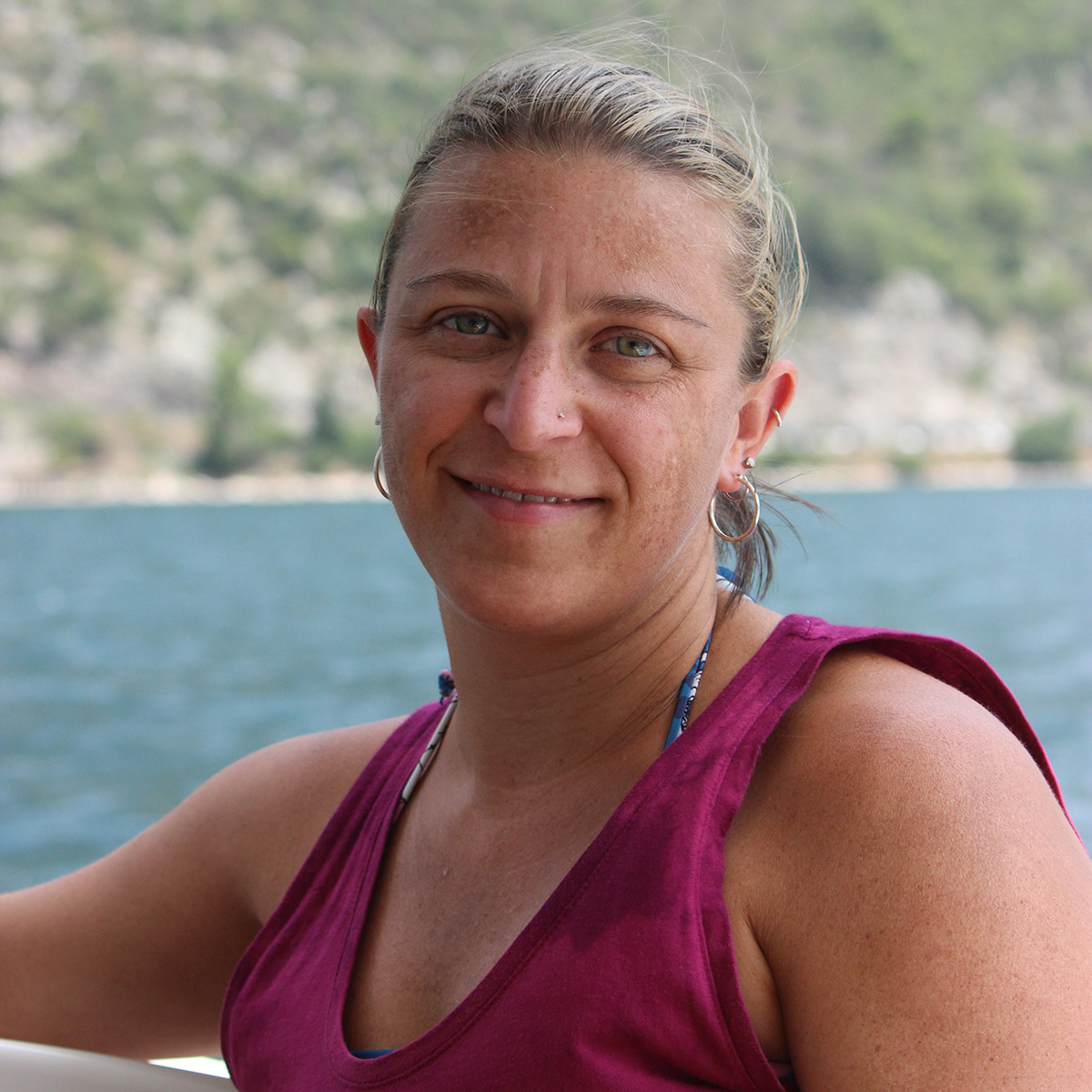
Cindy Grace-McCaskey, Ph.D
Assistant Professor, Department of Anthropology, East Carolina University
Office: 211 Flanagan
Phone: 252-328-9443
Email: gracemccaskeyc15@ecu.edu
Personal Website: cynthiagracemccaskey.com
Bio
I am a cultural anthropologist with a focus on applied environmental anthropology. I hold a joint position between the Department of Anthropology and the Coastal Studies Institute. I received an M.A. in Marine Affairs and Policy from the Rosenstiel School of Marine and Atmospheric Research at the University of Miami in 2006, and a Ph.D. in Applied Anthropology from the University of South Florida in 2012. My research interests include political ecology, marine resource management, traditional ecological knowledge, social-ecological systems, and cooperative resource management and institutions.
Education
Ph.D., Applied Anthropology, University of South Florida, 2012
M.A., Marine Affairs and Policy, Rosenstiel School of Marine and Atmospheric Science, University of Miami, 2006
Research Interests
My dissertation research included extensive ethnographic fieldwork utilizing a political ecology approach to examine the participation of marine resource users in fisheries management in St. Croix, U.S. Virgin Islands. After completing my dissertation fieldwork, I moved to Hawaii to conduct applied research for NOAA Fisheries and the University of Hawaii. During my five years in that position, I worked with fishing communities throughout the U.S. Western Pacific region, including Hawaii, American Samoa, Guam, and the Commonwealth of the Northern Mariana Islands. I joined the Department of Anthropology and CSI faculty in January 2016, and, in addition to continuing researching marine resource management issues in the US Caribbean, current projects focus on coastal communities’ resilience and vulnerability to impacts from climate change.
Publications
Grace-McCaskey, C.A. (2018) Multi-scale fisheries management in St. Croix, USVI: What influences participation? Human Organization 77(2):157-171.
Weijerman, M., C. Grace-McCaskey, S.L. Grafeld, D.M. Kotowicz, K.L.L. Oleson, and I.E van Putten. (2016) Towards an Ecosystem-Based Approach of Guam’s Coral Reefs: the Human Dimension. Marine Policy 63:8-17
Grace-McCaskey, C.A. (2012). Fishermen, Politics, and Participation: An Ethnographic Examination of Commercial Fisheries Management in St. Croix, U.S. Virgin Islands. Graduate Theses and Dissertations. http://scholarcommons.usf.edu/etd/4054.
Grace-McCaskey, C.A. (2016) Understanding Hawai`i Resource Users’ Knowledge, Attitudes, and Perceptions of Coral Reefs in South Kohala. Administrative Report H-16-02. NMFS-PIFSC. NOAA: Honolulu.
Grace-McCaskey, C. A. (2015). American Samoa Fishing Community Profile: 2013 Update. Administrative Report H-15-04. NMFS-PIFSC. NOAA: Honolulu.
Grace-McCaskey, C.A. (2014) Examining the Potential of Using Secondary Data to Better Understand Human-Reef Relationships Across the Pacific. Administrative Report H-14-01. NMFS-PIFSC. NOAA: Honolulu.


 Based at the Coastal Studies Institute (CSI), the North Carolina Renewable Ocean Energy Program (NCROEP) advances inter-disciplinary marine energy solutions across UNC System partner colleges of engineering at NC State University, UNC Charlotte, and NC A&T University. Click on the links below for more information.
Based at the Coastal Studies Institute (CSI), the North Carolina Renewable Ocean Energy Program (NCROEP) advances inter-disciplinary marine energy solutions across UNC System partner colleges of engineering at NC State University, UNC Charlotte, and NC A&T University. Click on the links below for more information. ECU's Integrated Coastal Programs (ECU ICP) is a leader in coastal and marine research, education, and engagement. ECU ICP includes the Coastal Studies Institute, ECU's Department of Coastal Studies, and ECU Diving and Water Safety.
ECU's Integrated Coastal Programs (ECU ICP) is a leader in coastal and marine research, education, and engagement. ECU ICP includes the Coastal Studies Institute, ECU's Department of Coastal Studies, and ECU Diving and Water Safety. The ECU Outer Banks campus is home to the Coastal Studies Institute.
The ECU Outer Banks campus is home to the Coastal Studies Institute.

